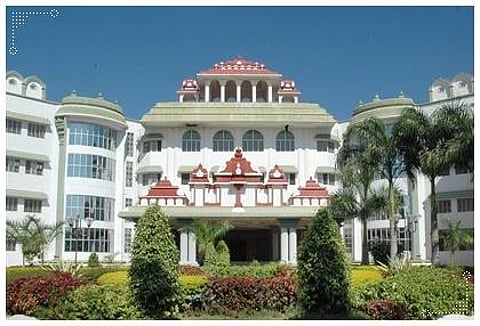

MADURAI: The Madurai Bench of Madras High Court on Thursday directed the Union government to follow the provisions of the Official Languages Act, 1963 strictly. “Once a representation is given in English, it is the duty of the Union government to give the reply in English only,” the court said.
A division bench comprising Justices N Kirubakaran and M Duraiswamy gave the direction while allowing a Public Interest Litigation (PIL) filed by Madurai Lok Sabha MP Su Venkatesan seeking a direction to use English alone in all communications between the Centre and the state government, its MPs and the people.
Venkatesan had approached the court after the Minister of State for Home Affairs replied to the MP's letter last year in Hindi alone. The MP had written the letter requesting to set up examination centres for CRPF paramedical staff recruitment at Tamil Nadu and Puducherry.
Justice Kirubakaran noted that one could understand the importance of languages as states were reorganised based on language. The central government should continue to use English along with Hindi which could act as a binding force, he added.
He also cited Article 350 of the Constitution, which states that every person is entitled to give representation in any of the languages used in the Union or the state. Hence, once a representation is given in English, it is the duty of the Union government to reply in English only, which is also in consonance with the Official Languages Act, he added.
The Bench also noted the central government’s explanation that the reply to the MP’s letter was inadvertently made in Hindi alone and that the violation was not intentional. Recording it, the Bench directed the Union government and all its instrumentalities to follow the Official Languages Act, 1963, especially the Section 3 of the Act- which says that both Hindi and the English languages should be used for the official documents - and the Official Languages Rules, 1976 strictly.
Justice Kirubakaran went on to add that language is important in the era of information and communication. “There are several languages in India which are hundreds or even thousands of years old. The governments ought to take efforts to preserve the languages. Mother tongue should also be given importance like that of English as knowledge without understanding of mother tongue would be incomplete,” the judge opined.